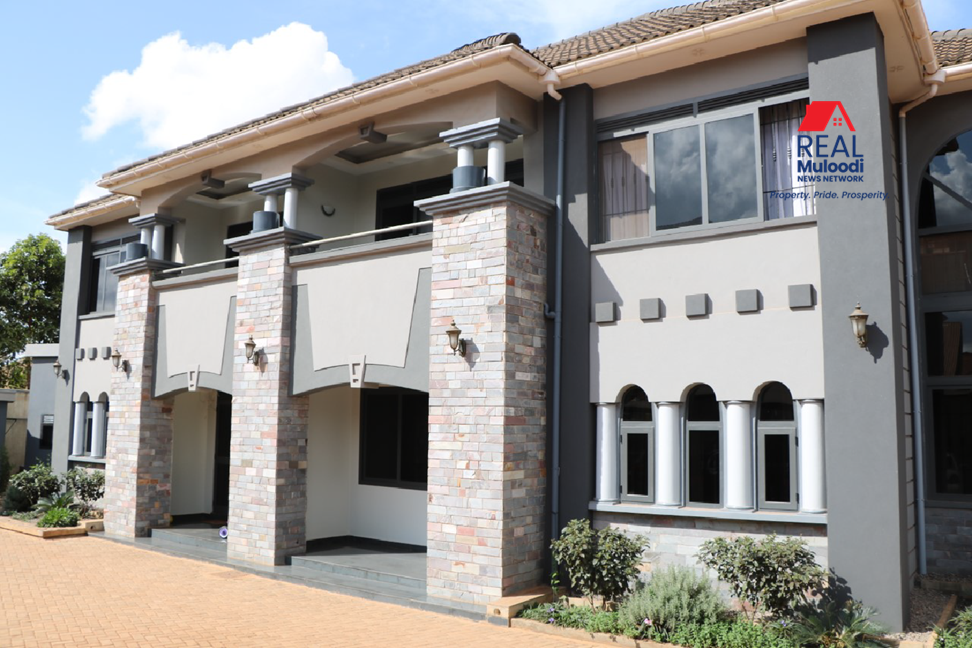UGANDA, Kampala | Real Muloodi News | Uganda has a housing shortfall of 1.6 million units. According to industry estimates, annual demand has increased to over 200,000 residential units each year.
They anticipate an increase in housing demand of 2.8 million units over the next four years, owing to a gradually expanding population and moderate growth in creating large-scale housing developments.
Despite the liberalisation of the real estate sector, industry participants claim that many Ugandans still lack access to affordable housing, blaming the housing gap in part on high construction costs and rapid increases in housing fees.
According to experts, affordable housing consists of good-quality homes in a good neighbourhood at reduced rates for middle-income individuals.
Modest-cost housing can mean high-quality dwellings or settlements for low prices. These are primarily for low-income users. There have been some concerns expressed regarding how affordable property can be.
According to Mr Abbas Rasheed, general manager of Universal Multipurpose Enterprises, a firm that deals in housing developments of condominium apartments and other living accommodations in the Kampala Metropolitan Area, low price varies from providing a luxurious residence with amenities such as a swimming pool, gym, and clubhouses in good spots to providing basic but decent shelter.
He says that alternatives such as payment duration and mortgage can help evaluate affordability.
“For the typical Ugandan, saving for your dream home can take many years. Banks and real estate firms may be a financing option for those that qualify for a loan or mortgage. However, high-interest rates result in financial pressure, and affordable housing stays a dream for many. Prospective first-time homeowners are now looking into purchasing a condominium as a more affordable path to achieve this dream,” he says.
Abbas, also a real estate specialist and consultant, adds: “This might not be your dream home, but condominiums are offering you the first step to owning a home.”
According to Kirabo Viola Alice Karemani, a realtor and marketer, the concept of affordable housing acknowledge the requirements of households whose earnings are insufficient to enable them to acquire adequate housing in the market on their own.
“Thus, the term’ affordable housing’ describing housing that assists lower income households in obtaining and paying for appropriate housing without experiencing undue financial hardship,” Karemani said.
According to Abdul Kyanika, Manager of Housing Business Retail and Microfinance Centenary Bank, affordable housing loans are excellent since most Ugandans wishing to enter the real estate market require solutions that will eventually support the emergence of decent housing in the nation.
According to Kyanika, multiple commercial banks now provide Ugandans affordable housing loans from financial institutions, making a land purchase and construction proceed efficiently throughout the housing project’s completion and upkeep.
“The availability of such affordable loans boosts the capacity of local development and construction in the long run,” Kyanika said.
He added, “Smart cities are a vision most city authorities envision. This will come to light only if the financial burden of actualising it is lifted off the shoulders of the citizens trying to make ends meet. It is no doubt that most Ugandans opt to construct only when they have accumulated a certain amount of money. The knowledge of affordable finance for home construction is one that will be sounded countless times until they fully embraced its concept.”
According to real estate industry analysts, housing costs keep rising since most developers have focused on high-end clientele with USh500 million or more budgets. However, there is a demand for those who can pay USh90 million for a two or three-bedroom house.
According to World Bank statistics, many Ugandans can buy USh90 million or more homes.
“One of the major strategies that can be considered to provide adequate affordable housing for the average income earner in Uganda is for developers to stop targeting wealthy and well connected elites as their market segment and rather consider low income earners for low cost houses which calls for such affordable developments across the whole country,” Kyanika added.
According to Jane Acilo, a real estate developer, the government should provide incentives to developers.
Prime Minister Robinah Nabbanja recently praised property developers for their efforts to offer affordable homes to Ugandans, acknowledging the essential role in meeting the housing market’s demands in Uganda.
She highlighted the necessity for affordable construction materials to develop affordable homes, pointing out that Uganda manufactures most of its building materials, like cement. According to Nabbanja, the government aims to lower power rates to boost the building industry.
“We are closely monitoring the situation through the National Building Review Board (NBRD), which was set up to help regulate the construction of building structures,” she said.
She further said that housing is one of the government’s development objectives and that the government is trying to encourage and support investment in affordable home construction.
READ MORE LIKE THIS:
New Survey Indicates Significant Demand for Condominiums in Kampala and Wakiso
Prime Minister Nabbanja: Gov’t to Support Developers of Affordable Housing
How Bitbricks Raised UGX1 Billion in a Year Towards Affordable Housing



